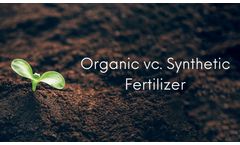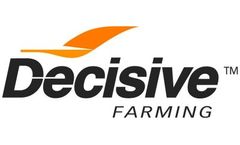Refine by
Nutrient Level Articles & Analysis
62 articles found
Growing conditions have been perfect over the last few weeks, so fertiliser has been going on ‘a plenty’ but have you a Nutrient Management plan (NMP) in place? Many businesses have signed up to nutrient planning as part of their Sustainable Farming Incentive (SFI) agreement, and the Environment Agency is looking very closely at NMP’s when they are inspecting ...
Feeding your plants is a fundamental aspect of nurturing a thriving garden, whether you’re aiming for a bountiful harvest or flourishing blooms. However, the choice of fertilizer significantly impacts the health of your plants and the environment. There are two primary types of fertilizers – organic and synthetic. In this article, we’ll delve into the pros and cons of each, ...
Quality management in food processing is crucial for food safety, consistency, and compliance with regulatory standards. It includes strict processes to control production, from sourcing through to ...
What is Leaf tissue testing? Leaf tissue testing is a crucial process for evaluating the concentration of essential elements within plant tissue. Essential nutrients, categorised as micronutrients and macronutrients, play key roles in sustaining the plant’s life cycle. Micronutrients, required in smaller amounts and macronutrients needed in larger amounts are essential for achieving ...
Today's soil sensors can measure a wide range of parameters, including moisture content, temperature, nutrient levels, pH, compaction, and even soil microbial activity. Benefits of Soil Sensor Innovation: Precision Agriculture: Soil sensors enable precision agriculture by providing farmers with site-specific information about their fields. ...
ByJXCT
These sensors can detect parameters such as moisture content, temperature, pH levels, nutrient concentrations, and compaction. By providing precise and continuous data, soil sensors enable farmers to make informed decisions about irrigation, fertilization, and other soil management practices. ...
ByJXCT
Importance of Soil Health Monitoring: Soil health is a complex and dynamic system influenced by various factors such as nutrient levels, pH balance, organic matter content, and microbial activity. ...
ByJXCT
Algae (photosynthetic organisms) can be found in almost any aquatic environment, such as ponds on golf courses. Depending on the type and level of growth, golf course pond algae can be beneficial and challenging. Therefore, here are some critical points about golf course pond ...
Identify and correct crop nutrient deficiencies in your soil to increase yield and profit Achieving prosperity in Canadian agriculture is a balancing act. While new technologies increasingly grow your potential to overcome limiting factors and boost yields, oftentimes revisiting the basics will further support your efforts to reach an optimum balance in soil nutrients. A great place to start is ...
· Nutrient levels: Monitoring key nutrients like nitrogen, phosphorus, and potassium empowers designers to tailor fertilization plans, promoting healthy plant growth without over-application. ...
ByJXCT
· Nutrient levels: Monitoring key nutrients like nitrogen, phosphorus, and potassium empowers designers to tailor fertilization plans, promoting healthy plant growth without over-application. ...
ByJXCT
They whisper stories of water content, nutrient levels, temperature fluctuations and even soil salinity. This nuanced understanding allows farmers to tailor their practices to the specific needs of each micro-district in the field. ...
High EC, for instance, might signal excessive salinity, hindering nutrient uptake and plant growth. Conversely, low EC can indicate nutrient deficiency, impacting yield and quality. ...
The Role of Soil NPK Sensors Soil NPK sensors, non-invasive devices that directly measure nutrient levels in the soil, have become invaluable tools for precision farming. ...
Nutrient levels: Soil sensors can detect the presence and concentration of various nutrients, enabling farmers to implement targeted fertilization strategies and optimize crop growth. Temperature: Understanding soil temperature is crucial for predicting seed germination, plant growth rates, and potential disease outbreaks. pH ...
Demystifying Soil Sensors: Unveiling Their Profound Impact Soil sensors are intelligent devices that continuously monitor and measure various soil parameters, providing real-time data on soil moisture, temperature, nutrient content, pH levels, and more. This granular information empowers farmers to make informed decisions regarding irrigation, fertilization, and ...
Soil NPK Sensors: A Precise Tool for Plant Nutrition Soil NPK sensors are high-tech tools that measure the levels of nitrogen (N), phosphorus (P), and potassium (K)—the three key nutrients essential for plant growth—in the soil. These sensors utilize advanced technologies, such as spectroscopy, to analyze soil samples and provide real-time data on ...
ByJXCT
Traditionally, irrigation scheduling has relied on estimates and fixed schedules, often leading to overwatering or underwatering, resulting in wasted water, nutrient leaching, and reduced crop yields. The advent of smart soil sensor systems has revolutionized irrigation practices by providing real-time, data-driven insights into soil moisture levels. ...
Among the positive things like constant learning and the rewards of a healthy crop, there are plenty of headaches. One such headache is nutrient deficiency. In this article, we will focus on one of the most common nutrient issues, Phosphorus deficiency. Phosphorus is one of the most important nutrients that your cannabis plants require. The ...
Hey there, fellow cannabis cultivator! If you’re delving into the fascinating world of cannabis cultivation, you probably already know how crucial nutrients are for your plants. One nutrient that holds immense significance in this green journey is magnesium. However, there’s a chilly conundrum we need to address: the inability of cannabis plants to absorb magnesium at low ...








